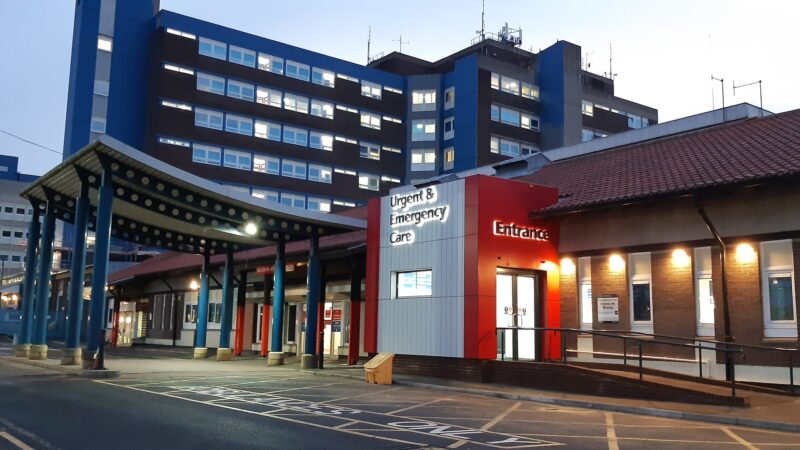
The emergency department is for life-threatening emergencies
Unless your condition is life threatening, please don’t just turn up or walk in the emergency department (A&E).
You can relieve pressure on the department by assessing your own, or someone else’s, needs first and ensuring the severity of your emergency.
Remember, many minor injuries and issues can be treated by self-medicating, contacting NHS 111 online or visiting your local pharmacy or GP.
When should I call 999?
You should call 999 straightaway in the event of:
- Unconsciousness
- Breathing difficulties
- Severe bleeding that cannot be stopped
- A serious head injury with heavy bleeding
- Persistent and severe chest pain
- Severe burns or scalds
- Severe allergic reactions
- A state of confusion and sudden fits that are not stopping
- Severe pain not relieved by over the counter medicines
Please do not put a seriously ill or injured person in a car and take them to the nearest health facility. Phone 999 and the paramedics will assess the patient and take them to the best hospital for their needs.
Please be aware, we use a priority system where the most seriously ill or injured patients are seen first.
Firstly, you will be assessed by our dedicated staff and, based on your needs, redirected to our emergency department, urgent care, or elsewhere based on the severity of your illness.
If it’s not life threatening but you need medical help fast, call the free NHS helpline on 111 instead. For more information about what to expect when you visit our emergency department
You can find out more information on what to expect when you visit our department on our accident and emergency page.
Should I go to urgent care instead?
We have urgent care centres at the University Hospital of Hartlepool and the University Hospital of North Tees.
Urgent care can treat minor injuries such as:
- Bites and stings
- Minor burns and scalds
- Minor illness, including fever, rashes or infections
- Sprains, strains and minor breaks
- Wound care
If you are feeling unwell and need to use the service, we advise you to book an appointment first by calling 111. This will help to speed up your treatment.
If you have a minor injury, you can still walk into the centres without an appointment.
Find out more about the service we provide on our urgent care service page.
Think pharmacy, GP and 111 first
Please keep our emergency and urgent care centres available for serious, life-threatening emergencies.
Pharmacists and GPs are qualified have expertise to deal with and treat many illnesses and injuries.
If you’re not sure which option is right for your needs, please call the NHS helpline on 111. They can offer advice and support about your health issue and where you need to go for help.
Self-care
You can deal with many minor injuries and illnesses simply by having a well-stocked medicine and first-aid cabinet.
It means that doctors and nurses can concentrate on looking after people who are seriously ill or injured.
You can use your medicine cabinet to treat things such as:
- Minor cuts and grazes
- Sore throat
- Coughs
- Cold and flu
- Headache
Pharmacy
Your local pharmacist can give advice and administer medication for most ailments.
They have fully trained staff and often have a private room so you can talk to them about confidential matters.
They can help if you have:
Pharmacy can help if you have:
- Diarrhoea
- Painful cough
- Painful headache
- Minor pain
GP
Your GP has the expertise to treat many ailments. If they cannot treat something in-house, they may refer you to one of our specialist services or urgent care.
Contact your own GP practice during opening hours to make an appointment. If the practice is closed, you can call 111 for advice. They may also be able to make an appointment for you.
What is NHS 111?
NHS 111 can help if you have an urgent medical problem and you’re not sure what to do. When in doubt, please phone 111 or visit the 111 website.
When you call the service you will be asked questions about your symptoms to find out the best treatment for you.
Depending on the situation you will:
- Find out which local services can help you
- Be connected to a nurse, pharmacist or GP
- Get a face-to-face appointment if you need one
- Be given an arrival time if you need to go to urgent and emergency care – this might mean you spend less time in the waiting area
- Get self-care advice
- Be given advice on how to get any medicine you need